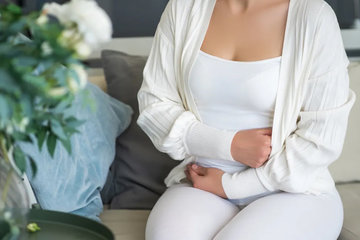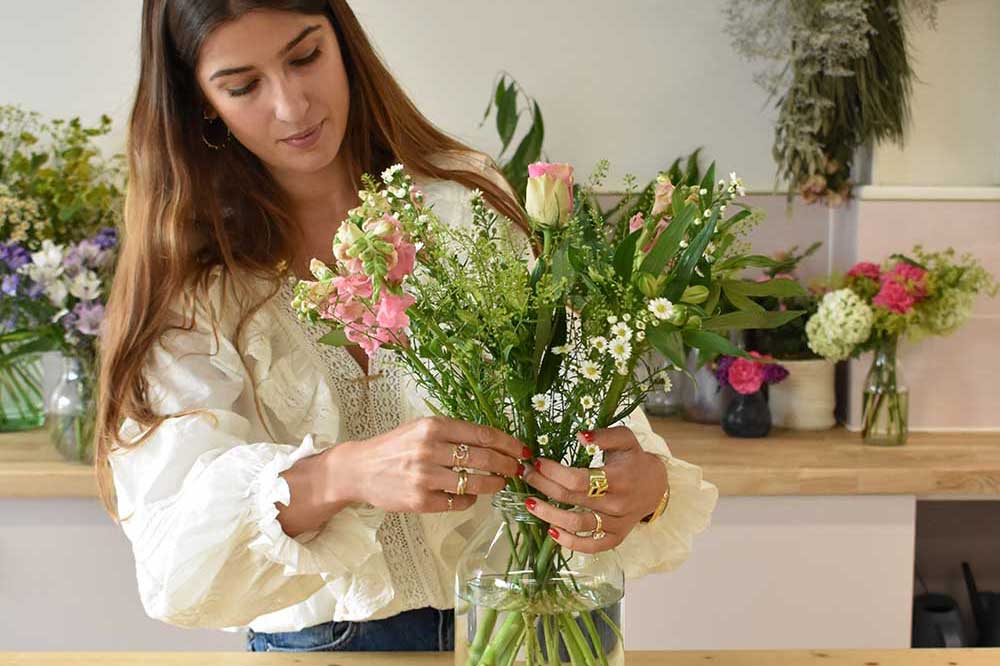
It’s Mental Health Awareness Week and as we deal with loads of uncertainty and new challenges like homeschooling and working from home, all causing our anxiety levels to skyrocket, the event hosted by the Mental Health Foundation seems more important than ever. Well, Bloom & Wild have shared some good news just in time for the week that helps drive conversations on mental health. A new study by the British inventors of the ‘letterbox flowers’, which looks at the impact of flowers on people's stress and productivity levels whilst working-from-home, has linked flowers with emotional wellbeing. The research proved the act of arranging flowers and even just having them nearby while working lead to a lowered heart rate, a boost in productivity and creativity and feelings of calmness.
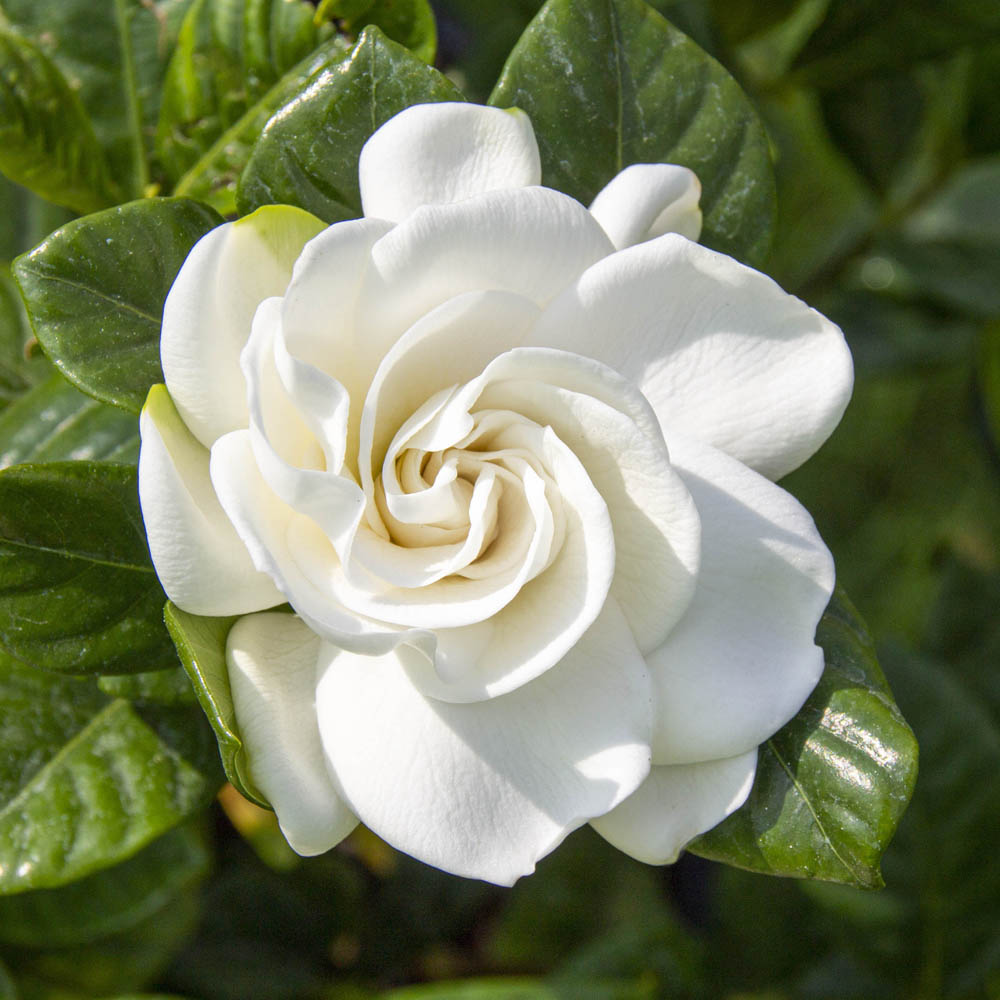
Gardenias
To carry out the Flower Power Test, Bloom & Wild sent flowers to a range of novice remote workers, asking them to track their heart rates while arranging their bouquets after completing a ‘stress-test’. After the short exercise, participants completed a survey, along with their housemates or partners, to see how the flowers affected their stress levels and efficiency. The experiment found flowers helped workers relax during a stressful day and that they have a physiological effect on the body. It also indicated flowers have a long-lasting impact on our immediate workplace.
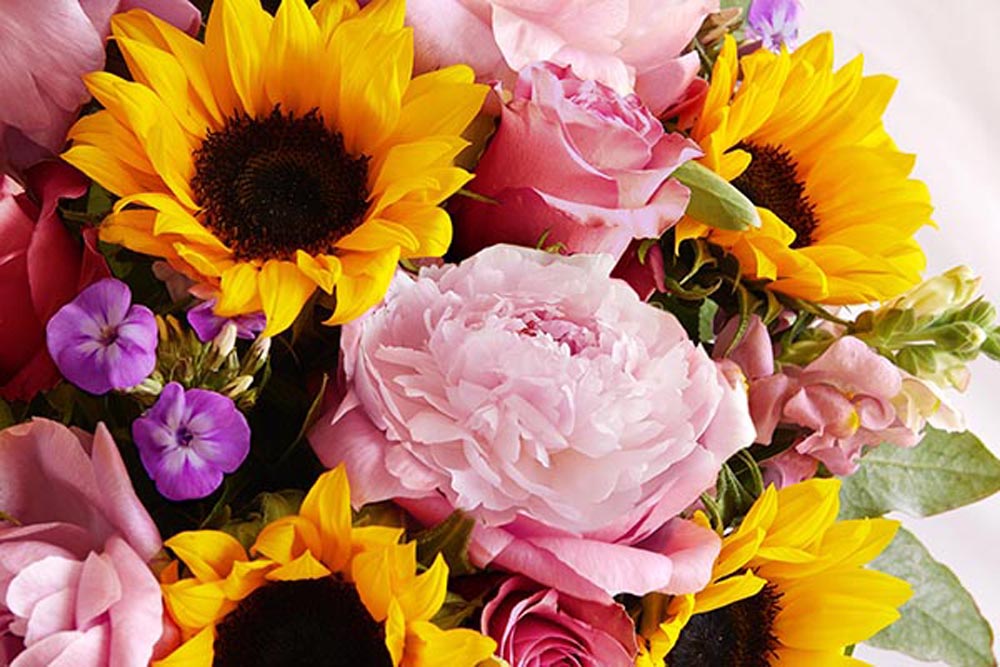
Sunflowers
After the experiment, the flower experts ran a survey to find out if participants would buy flowers again to help improve their work-from-home productivity. Every single person who replied said that they would buy flowers to improve their workspace as it made them feel happier, made the room more pleasing to be in and amped up their productivity.
"There are many psychological theories about self-actualising, which is about becoming your true self and being a whole person. It's about connecting to where you came from and nature is where we came from. When we're with nature we automatically feel more at home,” Lowri Dowthwaite, a specialist in psychological interventions at the University of Central Lancashire, explained to Bloom & Wild.
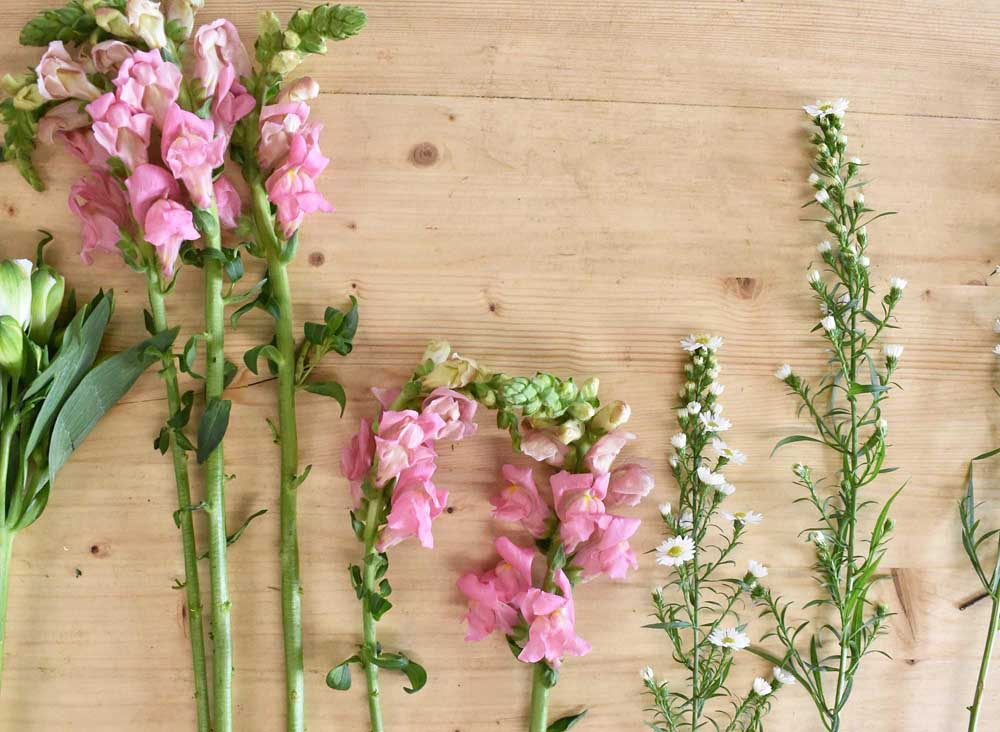
And with nature being so transportive, it’s more important than ever to get in touch with our roots in order to help us feel better from the inside out. What’s more, we don’t have to leave the house at all as studies have shown that just looking at a flower can be as powerful.
"There's some encouraging research that shows that we can, as much as possible, bring the outdoors inside in various ways that can actually still act like a connection to nature even though we're not physically in nature,” Dothwaite added.
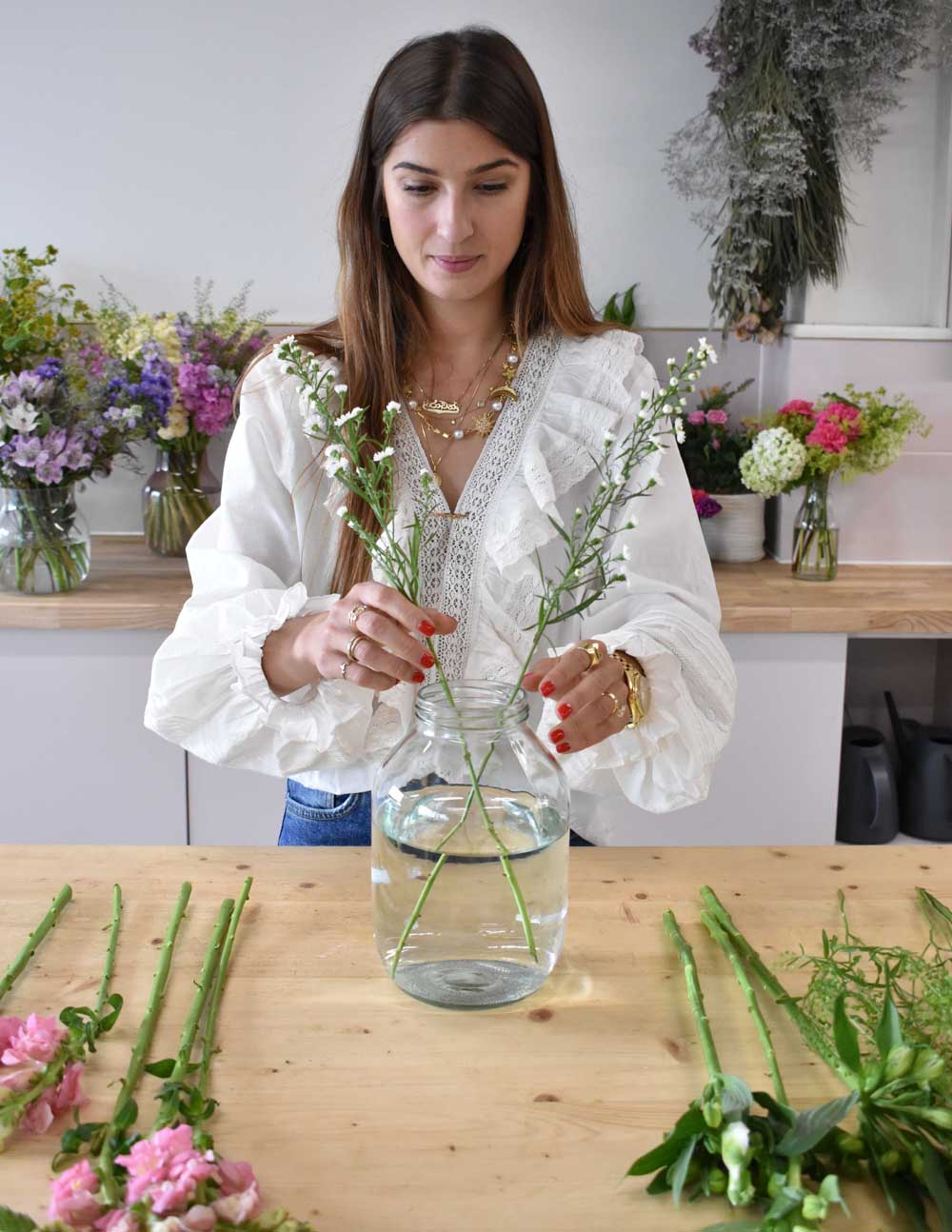
So how do flowers actually affect the brain?
Flowers are a sensual as well as a visual experience, so it's all about the colours people see, the way the flowers feel and the scent they give off. Flowers are known to stimulate several ‘happy’ chemicals like dopamine, oxytocin and serotonin in the brain. Whenever a person sees or receives flowers the brain recognises that as a good, rewarding thing. And according to Dothwaite, these biochemical changes that occur in the body can be especially helpful during times of stress. Generally, endorphins that are associated with wellbeing, like dopamine, the feel-good hormone, and possibly serotonin and oxytocin, are involved.

Red Roses
"For example, if people received flowers from a loved one or a special friend, this can help them feel closer to that person and when we feel close to people we release a hormone called oxytocin which is the bonding hormone - it helps us to feel connected to other people and during times of stress that's really, really important," Dothwaite said.
There has been lots of other research into the psychological impacts of flowers. And the results almost all showed that plants can lower blood pressure and heart rates and help strengthen emotional bonds between family and friends.
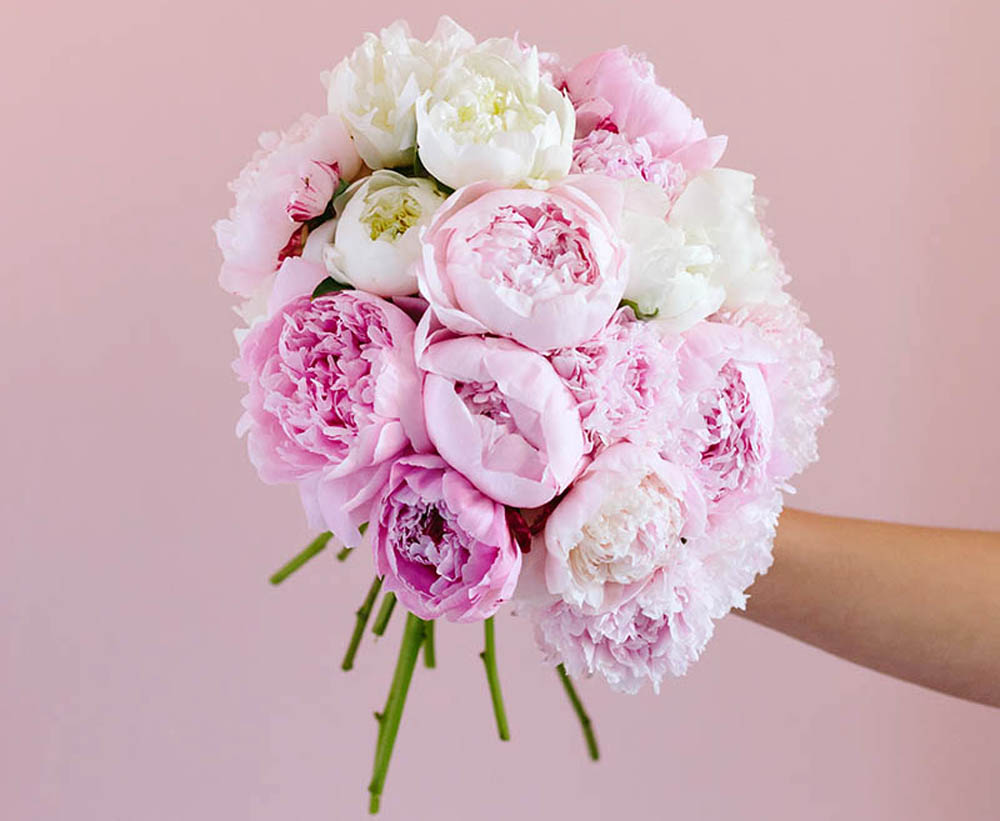
Peonies
Here are some results from Bloom & Wild’s research:
How flowers help people unwind during a taxing day
- 90% said they found focusing on something creative helped to reduce their stress levels
- 68% said they felt focused when arranging flowers
- 53% said they felt relaxed when arranging flowers
How flowers have a physical effect on the body
- On average 30 minutes of flower arranging made heart rates drop by 7.17 bmp
- Heart rates continued to drop after flower arranging by another 4.8 bmp. This suggests that having some time to disconnect and be around flowers did wonders for people’s stress levels!
How flowers have an ongoing impact on our direct workplace
- 100% said they felt happier when working with flowers in their space
- 75% said they felt some reduction in their stress levels after working with flowers in their space
- 50% said they felt more productive after having flowers in their workspace
For more information about the research, click here.



